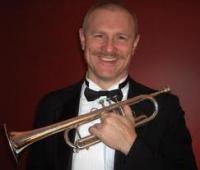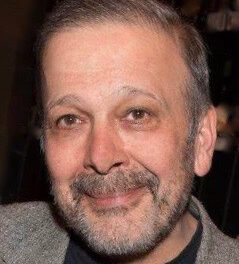More than one hour before the starting time, a line was already snaked and rapidly growing around Duke Chapel. The main reason was the rare opportunity to hear and see the St. Thomas Choir of Leipzig. The questionable word in that sentence is “see” since while the sound in Duke Chapel, for concerts like this, is as good as it gets, the sight lines may be nearly non-existent once you get further than about twenty rows back. The people who are aware of this are willing to brave long lines, inclement weather of all kinds, and aggressive music lovers in order to procure a decent seat.
As part of their Vocal Ensemble Series, Duke Performances presented an ensemble that, except for some religions themselves, is one of the longest continuously running musical organizations in the history of the planet. While we are used to celebrating centenaries and other milestones, this boys’ choir has been in existence since 1212. That is not a typo: they have been performing for 805 years! The obligatory fact to present is that their cantor/conductor, or Thomaskantor in German, from 1723 till his death in 1750, was Johann Sebastian Bach. The current cantor is Gotthold Schwarz.
The traveling choir consists of forty-nine young boys and men ranging in age, according to their website, from nine to eighteen years old, although some of the sopranos appeared to be even younger. They are listed as a standard SATB double choir, but that is where the similarity ends. A boy soprano’s voice is nothing like a female soprano and that sound, combined with the other relatively more mature vocalists, is like nothing else. As an aside, the reported decreasing ages of the onset of puberty for both sexes are narrowing the longevity of these boy soprano’s performance careers in that capacity.
Unlike other guest choirs who have appeared in Duke Chapel and enter at the front, the St. Thomas Choir processed from the rear with oldest boys first. An audible “aaww” was heard from the audience when the youngest boys appeared. Joining the choir was Stefan Altner, playing a chamber organ, and Baroque cellist Hartmut Becker.
“Psalm 100” of the long-lived Heinrich Schütz (1585-1672) opened the concert and right from the start the audience was transfixed and captivated by this choir. The most advanced recording techniques cannot even begin to approach the sound of this choir in a proper setting like Duke Chapel singing such monumental music. Aside from the purity of all the ranges of the singers, they were a unified musical organism: not once in the entire evening, except for a few solos, did one voice stick out over the others. Attacks and releases of every note were as precise as an expert surgeon’s. Intonation was centered and unfailing and swooping into a note was never heard. With such pure, non-vibrato singing it was as if the resulting chords caused a sympathetic vibration within all of us. It was magical, musical bliss.
The program featured the music of Schütz, Johann Hermann Schein (1586-1630), Bach (1685-1750) and Felix Mendelssohn (1809–1847). A very detailed and elaborate concert program was provided that gave the original German and translated text as well as notes on the works. It was a testament to the phenomenal performance that the audience was so attuned to the singers that there was a noticeable absence of program rustling and rattling.
With the Schütz and Schein works, the audience got an excellent comparison between the middle Baroque sound and the apex, with J.S. Bach’s compositions. Of course, this choir could have just sung a C major scale over and over, and it still would have been great music. Three of Bach’s motets were performed, each more dynamic and ethereal than the one before. The final one, Der Geist hilft unsrer Schwachheit auf, employed a double choir in a sort of battle of the choirs where we were all winners.
Duke Chapel organist Christopher Jacobson played two works serving as interludes between the three sections of the concert. His first was Bach, and his second was from Mendelssohn’s Organ Sonata No. 3. This followed two reduced choir selections by Mendelssohn, generally credited with “rehabilitating” Bach’s reputation and re-introducing several of his greatest works into the public eye.
I found it rather charming that a few times I noticed some of the younger boys became a bit distracted as they looked around and even playfully bumped into each other. I’m sure the conductor Schwarz would not agree, but they are still just kids, and it did not affect the music one bit!
It’s fairly easy to describe okay, mediocre or even very good musical performances. A transcendent musical experience like this comes down to “you’ve just got to hear it yourself.” When you add to that mix the fact that Bach himself conducted and composed for a direct musical lineage of these boys, it was as if you were actually in the midst of that greatest of musical creators.












